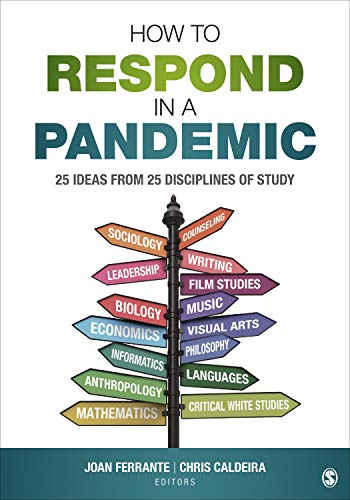VIEWPOINTS: At 25, I moved home to help my family during the pandemic
January 31, 2021
Editor’s Note: Submissions are edited for clarity and length. 130 students read Dr. Joan Ferrante’s “How to Respond in a Pandemic” as part of a Health Innovation grant. Dr. Ferrante shared the award-winning essays with The Northerner. These essays detail how students used the book to cope with the pandemic in their lives.
Health care ethics: Michael Puleo
I have a very small family that includes an aunt who is 80 years old, a younger brother with severe asthma, and a mother who works with terminally ill children. As the only adult male in the family, I believe I have certain responsibilities to my family I must maintain. My mother—who understood the seriousness of the situation—and I agreed that the only logical choice was for me to pack up and move back home. As a 25-year-old homeowner, quitting my job, cleaning out my house, and spending several months on a broken air mattress at my mother’s house out of state was demoralizing and emasculating, evoking an ever-present sense of fatalism.
My response to the changes brought by this pandemic fluctuated rapidly and unexpectedly. The first being acceptance. What a great opportunity to reconnect with my family, focus entirely on my schoolwork, and do things I, otherwise, could not have. I embraced my newfound free time, taking extra classes, reading, learning Spanish, and exploring my brother’s life and interests. However, I quickly ran out of the distractions that transformed into a fog of despair. What I imagined to be a weeklong furlough turned into a months-long battle to keep negative thoughts at bay. Any momentary joy I gained from breaking quarantine could lead to detrimental consequences. The most infuriating aspect of my situation was that there was no one to blame—no solution outside of patience and prayer. Once school ended, I was desperate for stimulation. Drinking and over-eating provide no comfort. The previous years I had spent establishing my life, changing my habits, and striving for whom I hoped to become was crumbling beneath me. The pillars of my labor, which I had believed to be unshakeable, began to seem like a house of cards. There is no certainty. Anything you are given can be taken away, and the punishment for taking things for granted is swift and unforgiving. One thing I would like to take away from this experience is appreciation: appreciation for what we have, the opportunities we take, and the freedoms we enjoy.
My responses to the pandemic line up with a few idea papers included in How to Respond to a Pandemic. In “Stand Up for the Marginalized and Vulnerable” (philosophy), Frimpong-Mansoh writes about the egalitarian ethical frame. I believe I took an egalitarian approach because although I would have benefitted more if I had not moved in with my family; the needs of the many outweighed my needs. Not just the needs of my family, but the children my mother works with, the other children my brother sees, and the ever-vulnerable nursing home residents with which my aunt works. If I had not considered the needs of others, all of these people might have been harmed or even died.
I learned from Isabella Zembrodt’s “Work to Become Resilient” (clinical counseling) that the COVID-19 crisis can be an opportunity for building resilience, a very constructive response that could have been useful to me. I believe all our experiences, especially our mistakes, make us stronger. Next time my entire life is turned upside down, I will be more prepared. I will remember that the sun comes up and the resilience I have gained from this experience is one thing that cannot be taken away.
I also learned that creative writing can be an extremely useful tool. As poet Kelly Moffett says, creative writing allows you to “pause, slow down and, reflect.” In such a noisy world, I believe it is crucial to, sometimes, silence the outside and develop some introspection. Poetry, free-form, and other creative writing exercises can accomplish this and help relieve some of the burdens of uncertainty.
I also value what I learned from Linda Dynan’s “Behave as if You Are Contagious” (health economics). That response to the pandemic is worded better than I could have hoped for. We have a social responsibility to keep others healthy. Most people live even if they catch the virus and they act according to this belief. However, I’d like to ask, could you live with yourself if you caused suffering to others?
This assignment and this class have increased my capacity to make responses and protect myself as well as others. I am grateful for the opportunity to organize my thoughts in such a way. I would never expect to learn from the arts, from writing, or music regarding a pandemic—yet their insights are valuable. Though much of our lives are consumed by the conversation surrounding COVID-19, many do not truly consider its consequences or long-term effects. Every discipline is crucial in times of crisis and How to Respond to a Pandemic could be expanded to many other disciplines beyond the 25 mentioned. I have learned a lot about why I responded the way I did and what I may have done differently had I used all my resources. How to Respond to a Pandemic shows the remarkable unity of people, interests, and fields that might otherwise never interact or crossover. To have 25 scholars make thorough and constructive responses to one subject shows the often-underestimated human capacity for cooperation. Many overlooked and underappreciated disciplines have been shown in a new light through this crisis.

